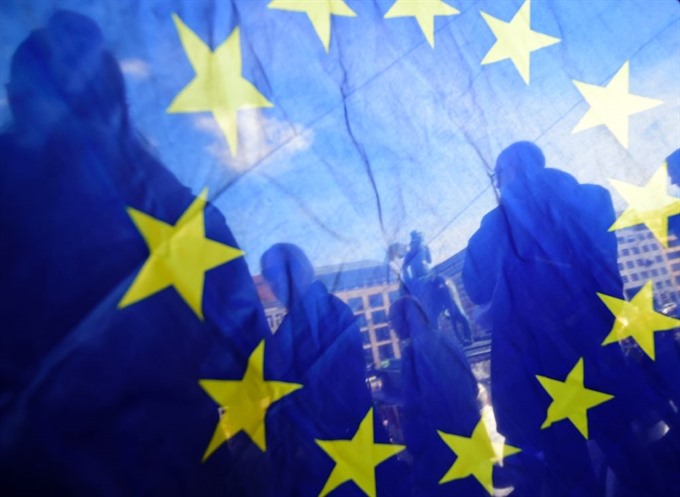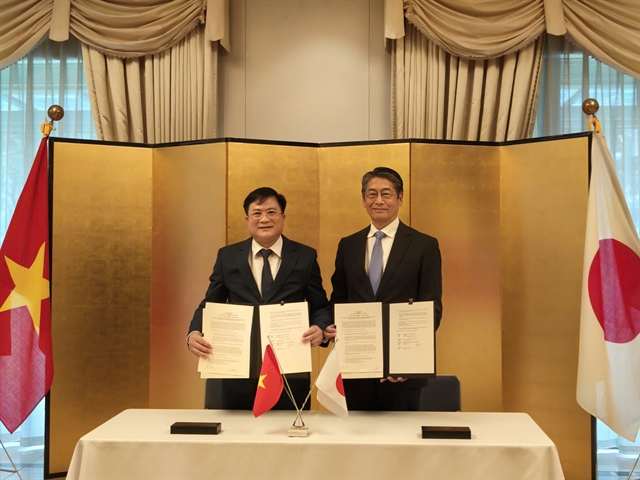 World
World

The European Union is set to reveal on Friday its negotiating plan for Brexit, two days after British Prime Minister Theresa May launched the two-year countdown to divorce.
 |
| EU president Donald Tusk will issue draft guidelines setting out the political priorities of the remaining 27 countries for talks to sever Britain from the European bloc. - AFP/VNA Photo |
VALLETTA — The European Union is set to reveal on Friday its negotiating plan for Brexit, two days after British Prime Minister Theresa May launched the two-year countdown to divorce.
EU president Donald Tusk will issue draft guidelines setting out the political priorities of the remaining 27 countries for what promise to be difficult talks to sever Britain from the European bloc.
Germany and France have already united against May’s call to negotiate the exit and the new relationship at the same time, and Tusk’s guidelines are expected to deliver the same tough message.
Tusk will give a press conference in Malta with Maltese Prime Minister Joseph Muscat, whose country holds the EU’s rotating presidency, to discuss the strategy at 0745 GMT.
The guidelines are also expected to contain more details on a possible transitional period, between Brexit on March 29, 2019 and the start of a new trade deal some years later.
The EU 27 will adopt the guidelines at a special summit on April 29. The EU’s French chief negotiator, Michel Barnier, is expected to get the green light to start talks with Britain weeks later.
May formally notified the EU of Britain’s intention to leave in a letter to Tusk on Monday that diplomats described as surprisingly conciliatory in tone for the most part.
’Brexit not the end’
But May’s warning in the letter that failure to clinch a deal on trade would affect Britain’s cooperation on terrorism and security still rankled with many.
"It’s not a threat," Brexit minister David Davis told BBC radio after warnings from Brussels against using security as a bargaining chip in the talks.
The EU has proclaimed its unity on Brexit, even as it reels from one of its biggest members becoming the first to start withdrawal negotiations, in the bloc’s 60th anniversary year.
"Brexit is not the end of everything, but we must make it a beginning of something that will be new, stronger and better," European Commission chief Jean-Claude Juncker said in Malta on Thursday.
French President Francois Hollande followed German Chancellor Angela Merkel in snubbing May’s proposed structure for the negotiations, saying the exit agreement should come first.
The fate of three million EU citizens living in Britain and one million British people within the bloc’s nations is at the top of leaders’ agenda.
Also looming large is the so-called "exit bill" which Britain will have to pay, estimated to be as much as 60 billion euros ($64 billion), and the border between Northern Ireland and Ireland.
EU leaders hope to resolve those issues by the end of the year before moving on to the future relationship and a possible transition.
But that leaves only 10 months before October 2018 when Barnier says the talks must wrap up to give time for the European Parliament and member states to approve what the negotiators come up with.
Business fallout
In the first signs of a business fall-out since May’s Brexit notification, the prestigious Lloyd’s of London insurance market said it would open a new Brussels subsidiary to ensure smooth operations in the EU.
"We would no longer be able to provide insurance for our customers in the EU" without an office in the bloc, Lloyd’s chief executive Inga Beale said.
The scramble for spoils after Britain leaves the single market has also kicked off, with Luxembourg laying legal claim to host the London-based European Banking Authority, amid stiff competition from Frankfurt.
Britain has meanwhile started laying plans for the daunting task of bringing thousands of items of EU regulation into British law on the day that Britain leaves the EU.
But May is struggling to bring unity in the wake of the divisive Brexit referendum last June that saw 52 percent vote in favour of leaving the EU and 48 per cent against.
As well as fears for the Northern Irish peace process from a return of a hard border, the referendum result has also led to a renewed campaign for independence in pro-EU Scotland. — AFP




